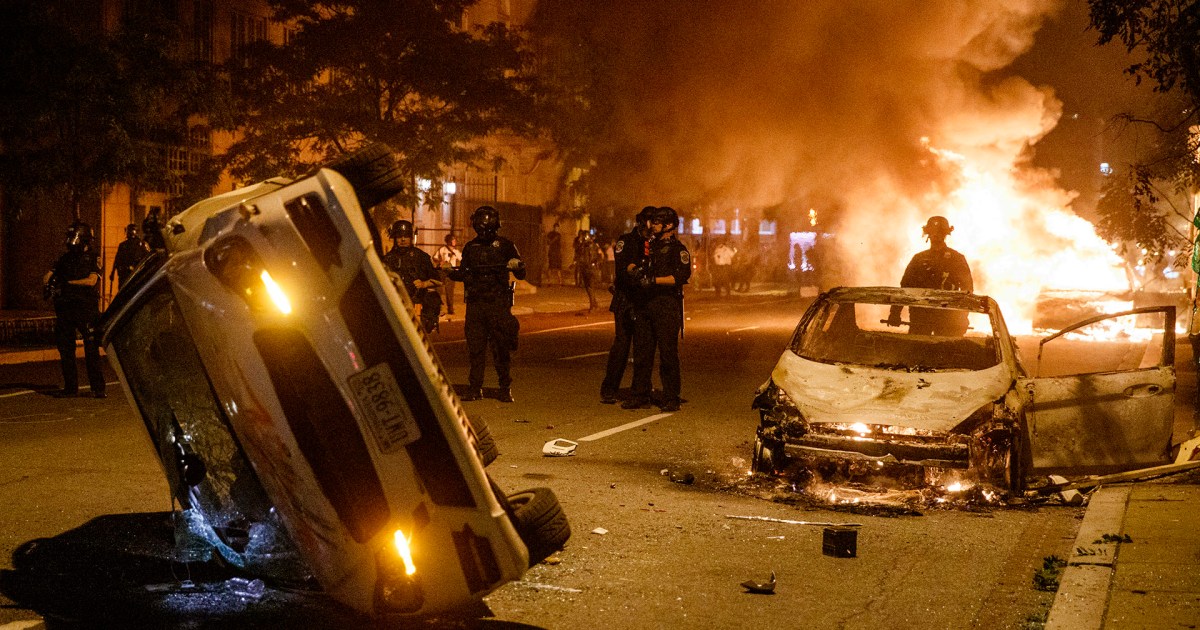Brutal killing by the police, a wave of public outrage pushing citizens onto the streets to engage police officers, attacks against journalists, and a president justifying brutal measures against demonstrators under the pretext of the threat posed by "saboteurs and terrorists".
This is how the scenes of the Arab Spring events in Egypt a decade ago appeared, reviving - in the minds of many Egyptians in recent days - pictures of similar events in the United States, where the familiar scenes of fire, tear gas, pain, and if the context differs.
With this introduction, Declan Walsh, director of the New York Times office in Cairo and her correspondent for Middle East affairs, started an article for him in the newspaper entitled "Pictures of the American protests evoke memories of the lost revolution in Egypt."
The author highlighted the similarities and differences between the turmoil in the United States after the killing of George Floyd, an African American, by a policeman in Minneapolis, Minnesota, last week, and between the Egyptian revolution that toppled the late President Hosni Mubarak in January 2011.
He pointed out that many shocking scenes of the turmoil in the United States, such as the image of the only protester standing defiantly in front of a battalion of riot police, a police car crashing into a crowd of protesters, and the tongues of fire rising from a police station after being burned by protesters, all scenes returned to Mindful of similar events and images experienced by Egypt during the 18 days of protests that eventually resulted in Mubarak's abdication.
Worse than Mubarak
According to the author, there are limits to the comparison between the turmoil in the United States today, which is a cry in the face of racism and inequality, and the Egyptian revolution that arose from the feelings of frustration resulting from decades of patronage and brutal tyranny.
American democracy still has a free press despite what it is going through, and enjoys the rule of law, and does not live under a dictator who seeks to overthrow him, contrary to what was the case in Egypt in the year of the popular revolution against the Mubarak regime.
Yet the striking irony lies in Trump's reaction, which has repeatedly praised Egypt's President Abdel-Fattah el-Sisi and once described him as a joke as his favorite dictator, and now appears to be bent on mimicking his soul if not his approach to dealing with demonstrations sweeping American cities.
The writer pointed out that Trump called in recent days to use violence against those who commit looting, and incited against demonstrators through statements in which he said the demonstrations were behind them as saboteurs, and described the protesters as terrorists during a phone call last Monday with state governors who urged them to punish the demonstrators .
The article cited a commentary by the Egyptian writer and activist, Soueif's goals, during which she compared Mubarak's engagement with the revolution and Trump's stance against the unrest, saying that the late president used a more conciliatory and softer language even at the height of the events of the Arab Spring. ".

